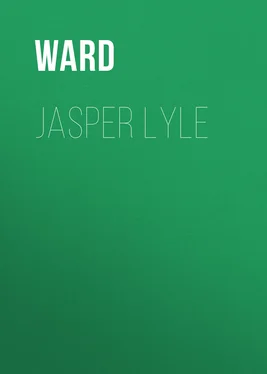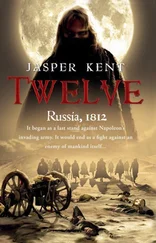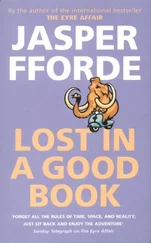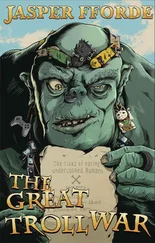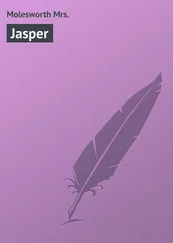Ward - Jasper Lyle
Здесь есть возможность читать онлайн «Ward - Jasper Lyle» — ознакомительный отрывок электронной книги совершенно бесплатно, а после прочтения отрывка купить полную версию. В некоторых случаях можно слушать аудио, скачать через торрент в формате fb2 и присутствует краткое содержание. Жанр: foreign_prose, foreign_antique, на английском языке. Описание произведения, (предисловие) а так же отзывы посетителей доступны на портале библиотеки ЛибКат.
- Название:Jasper Lyle
- Автор:
- Жанр:
- Год:неизвестен
- ISBN:нет данных
- Рейтинг книги:5 / 5. Голосов: 1
-
Избранное:Добавить в избранное
- Отзывы:
-
Ваша оценка:
- 100
- 1
- 2
- 3
- 4
- 5
Jasper Lyle: краткое содержание, описание и аннотация
Предлагаем к чтению аннотацию, описание, краткое содержание или предисловие (зависит от того, что написал сам автор книги «Jasper Lyle»). Если вы не нашли необходимую информацию о книге — напишите в комментариях, мы постараемся отыскать её.
Jasper Lyle — читать онлайн ознакомительный отрывок
Ниже представлен текст книги, разбитый по страницам. Система сохранения места последней прочитанной страницы, позволяет с удобством читать онлайн бесплатно книгу «Jasper Lyle», без необходимости каждый раз заново искать на чём Вы остановились. Поставьте закладку, и сможете в любой момент перейти на страницу, на которой закончили чтение.
Интервал:
Закладка:
He had not long left this spot when I introduced him to the reader at the early part of this chapter. He rises, but not without effort: his steeds are quietly enjoying the crisp herbage, and above, the baboons are looking out from their hiding-places, and shouting aloud. Trail began to fancy his “little people” had caught sight of him, and were calling to him from the rocks overhanging the platform on which he stood.
He determined on seeking at once for some sheltered corner, where he could kindle a fire, picquet his horses near him, and eat such provision as he had brought, deferring his further search till dawn. The non-appearance of a single living being puzzled him, the more when he discovered the remains of a fire, over which the wind had passed, scattering the ashes. It was evident that a meal of locusts had been here cooked and eaten, probably some three or four days before. Some had been rejected, and some were mingled with corn lying amid the ashes. A stray arrow or two was also to be found, and a bow, unstrung, rested against a stone. Whilst examining these evidences of human existence, something rose heavily from a stunted bush: a huge asphogel, scared at last from its lethargy, flapped its wings, rose slowly over Trail’s head, and floated down the mountain-side; another and another followed, and our missionary felt assured that, dead or dying, some members of the barbarian community were not far off. He discovered a fearful group at last. It would be a sad task to describe the scene as it was depicted by him to one who related the circumstances to me. It was probable that some part of the community had been absent on a hunting expedition when the fatality occurred, which had destroyed three aged bushmen, four or five women, old and young, all inconceivably hideous in death, and several children. One poor baby lay across its miserable mother’s bosom, apparently the victim of a snake, for the creature lay coiled up beside the dead body, and a wretched little object had been mangled by vultures at the entrance to the grot or cave into which the party had apparently crawled to suffer and die together.
Trail had heard of whole families of bushmen dying from a surfeit of a hearty meal of locusts,—from poisonous roots being mingled in their cookery with the larvae of ants,—and of their sometimes falling victims to the deadly enmity of some adverse tribes; but he saw it would be dangerous as well as useless to penetrate the charnel-house further; indeed he had taken as sharp a survey of the interior as the light falling through a chasm would allow, and he shrunk from ascertaining whether an inner cave existed.
Struck with horror, he had made up his mind to move some distance down the mountain in spite of the coming darkness, when a feeble moan drew his attention to a cleft in the rock, just at the entrance or mouth of the cavern.
He knew it was the moan of a living being, and began to examine the corner whence it proceeded, but all was in darkness; stretching out his arm, he groped among the stones, and at length touched a clammy hand, the fingers of which closed round his with a cold convulsive grasp. He drew the creature forth, and found it to be a little bushboy, probably five or six years old.
It was our friend May. He derived his name from the month in which he had been brought into the Christian world, as Trail said. Truly the good man’s laying his hand upon the little creature was a wondrous and providential circumstance. Poor, degraded, barbarous imp, thou wert a frightful object; but the good minister looked on thee with the deep anxiety and affection that those only feel who love their neighbour in the true spirit of a Christian, and helpless and hideous as thou wert, doubtless there were angels singing triumphantly through the golden aisles of heaven as a herald on bright wings came among them with glad tidings of a soul rescued from darkness. It was thine, poor May, lying lonely and desolate, and apparently forgotten, in that fearful darkness; the day-star from on high was ready to shed its light upon thee, and there was great rejoicing among the ministering spirits of the upper world!
We cannot trace the melancholy facts of the deaths alluded to to their sources; nine or ten unredeemed souls had passed the outer threshold of this world, to that mysterious region whence none return with a record; but whether the cause arose from accidental poison, or by the agency of vicious neighbours, Trail never ascertained. How the imp May had escaped appeared a miracle; mayhap he had been absent gathering honey or digging for roots; the goats had disappeared, if there had ever been any; there was sheep wool on the bushes, but there were no sheep, and the missionary concluded that the hunters had probably returned after the calamity had befallen their fellows, and, in superstitious dread of the locality, had hurried to change their quarters without any closer examination of the spot than they had been induced to make from curiosity or rapacity.
Speculation was fruitless, useless; May was rescued, and Trail, carrying him to the bushes where the horses were picqueted, gave him such nourishment as he could. It revived him, and as soon as he could manage it, our traveller descended with his steed and the child to a convenient spot, where he lit a fire at the opening of a natural alcove. Here he again fastened his horse to a tree, happy in having found a spot watered by a rill, which trickled down a channel among the rocks, and spreading his veldt combass , a large rug made of dressed sheepskins, upon the sward, he laid his saddle beneath his head, and not far from him he did not disdain to place the weary and frightened being, whose sleep was soon as peaceful as a Christian child’s within “a fair ancestral hall.”
The night passed without further adventure, for Trail’s sleep was light, and he kept up the fire at his feet, so as to prevent the intrusion of the wild beasts of the neighbourhood. At dawn he found his protégé still sleeping; and by the time he had made further but unavailing search for some living evidence of the sad spectacle he had beheld, the mist had cleared away from the hill-side, and he descended with his child of the wilderness to the bivouac, where he found his people in some alarm and uncertainty about his safety.
To untravelled readers the idea of leaving the dead unburied among the rocks and caves must appear rather unseemly, to say the least of it; but, in the first place, Trail’s party could not have accomplished such an undertaking by themselves; and, in the next, leaving the waggon and its contents together with the oxen, would have been madness. Add to this, the chances were that a horde of bushmen might return to the spot unexpectedly, and there was dearly no alternative but to make the best of the early part of the day; for, although the mission-house was only nine miles distant, the way lay between narrow and rocky passes, wound up the steepest acclivities, and was at times difficult to penetrate, owing to intervening clumps of bush, connected by a tangled growth of underwood.
So the child was called May, in memory of the period of his rescue. The bewildered creature’s language was utterly untranslatable; but, with the keenness of perception so peculiar to his race, he soon learned to express his wants in a curiously-mixed dialect of Hottentot, Dutch, Kafir, and English, and this part of his education accomplished, Mr Trail sent him to his friends at the larger mission station to be trained into something like civilisation by good Mrs Cheslyn.
And now it may be told, in a few words, how May progressed in his education; how he learned to sing hymns in a truer voice than the Kafir children, whose notes, however, far surpassed his in melody; how he loved to dance in the moonlight with the Fingo herds, when Mrs Cheslyn thought they were all fast asleep in an old school-house, till their unearthly chant brought Mr Cheslyn out among them; how when the truant was punished, he would escape, stay away for days, and come back afterwards with ostrich eggs; how he would sulk sometimes with his lips out, and his eyes almost hid by the low frowning brow, run away again, and again return; how he stood in awe of no one but Mr Trail; how, if he was saucy to Ellen Cheslyn, it was for her sake he usually returned from his wanderings; how he would watch her in the doorway, looking up the road on those days when Mr Trail was expected; then as he caught a glimpse of horse and rider, winding down the hill, he would ask her, in Kafir, “Uza kangala nina? uza lunguzela nina apa?”—“What are you looking for? What are you peeping there for?” Then, with a low chuckle, he would spring over the stoep , topple head over heels down the garden walk and through the gateway, and, with distorted limbs and visage, hasten to give his friend and benefactor the “Good morrow,” pointing back to the house to call attention to the watchful Ellen, and then plunging into the thicket, laughing and singing, and as merry as a cricket.
Читать дальшеИнтервал:
Закладка:
Похожие книги на «Jasper Lyle»
Представляем Вашему вниманию похожие книги на «Jasper Lyle» списком для выбора. Мы отобрали схожую по названию и смыслу литературу в надежде предоставить читателям больше вариантов отыскать новые, интересные, ещё непрочитанные произведения.
Обсуждение, отзывы о книге «Jasper Lyle» и просто собственные мнения читателей. Оставьте ваши комментарии, напишите, что Вы думаете о произведении, его смысле или главных героях. Укажите что конкретно понравилось, а что нет, и почему Вы так считаете.
